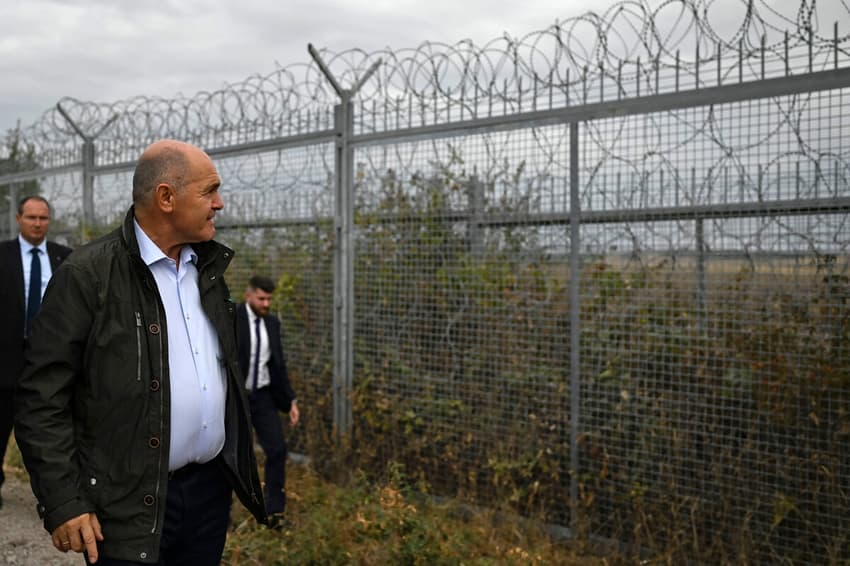What's the reason for Austria's recent border clamp down?

Austria has recently extended the enhanced controls that were introduced at its border with Slovakia in early October. What’s behind the move, and what does it hope to achieve?
What is behind the increased scrutiny and security at the Slovakian border?
The central European nations have long struggled with illegal migration and human trafficking from the east, with one popular route flowing through the Balkan states.
Recent regional instability, provoked by the Ukraine war and other regional conflicts, has led to increased numbers trying to enter the European Union through countries such as Slovakia.
The border between Austria and Slovakia is particularly challenging from a border security perspective, in that some of Austria’s least developed regions border some of Slovakia’s most developed, making surveillance difficult from the Austrian side.
Furthermore, there are many who commute daily between Austria and Slovakia (and vice versa), providing increased opportunities for illegal crossings.
What are the enhanced controls that have been put in place?
Beginning on Wednesday, October 4th, Austrian police began conducting random checks on those arriving at road crossings along the country’s 91 km border with Slovakia, and further personnel were deployed to observe and intercept other moments between the two countries.
While authorities have stressed that traffic at crossing-points should not be significantly impacted, motorists should factor potential delays into their movements.
Interior Minister Gerhard Karner (ÖVP) stated that "the police must be quicker than the smugglers," explaining the relative speed and lack of fanfare with which these checkpoints were set up.
What do they hope to achieve?
The recent move to increase checks is an attempt to curb the number of illegal crossings, and hamper the work of human traffickers, whose massive profits not only fund organised crime, but create numerous security risks.
The move has been coordinated in partnership with several other nations, including Germany, Italy and Poland, as part of a broader crackdown.
When have these measures been extended to?
The measures were extended for another twenty days, meaning that they will be in place until November 22nd. This follows the decision of Czechia, Italy and Poland to extend their own enhanced border checks.
How successful have the enhanced measures been?
According to reports from the Austrian Ministry of the Interior, shortly after the introduction of the new measures, there was already a tangible effect in slowing illegal crossings.
19 human traffickers were arrested at the border, and around 180 individuals had been prevented from entering Austria at the time of publication.
Comments
See Also
What is behind the increased scrutiny and security at the Slovakian border?
The central European nations have long struggled with illegal migration and human trafficking from the east, with one popular route flowing through the Balkan states.
Recent regional instability, provoked by the Ukraine war and other regional conflicts, has led to increased numbers trying to enter the European Union through countries such as Slovakia.
The border between Austria and Slovakia is particularly challenging from a border security perspective, in that some of Austria’s least developed regions border some of Slovakia’s most developed, making surveillance difficult from the Austrian side.
Furthermore, there are many who commute daily between Austria and Slovakia (and vice versa), providing increased opportunities for illegal crossings.
What are the enhanced controls that have been put in place?
Beginning on Wednesday, October 4th, Austrian police began conducting random checks on those arriving at road crossings along the country’s 91 km border with Slovakia, and further personnel were deployed to observe and intercept other moments between the two countries.
While authorities have stressed that traffic at crossing-points should not be significantly impacted, motorists should factor potential delays into their movements.
Interior Minister Gerhard Karner (ÖVP) stated that "the police must be quicker than the smugglers," explaining the relative speed and lack of fanfare with which these checkpoints were set up.
What do they hope to achieve?
The recent move to increase checks is an attempt to curb the number of illegal crossings, and hamper the work of human traffickers, whose massive profits not only fund organised crime, but create numerous security risks.
The move has been coordinated in partnership with several other nations, including Germany, Italy and Poland, as part of a broader crackdown.
When have these measures been extended to?
The measures were extended for another twenty days, meaning that they will be in place until November 22nd. This follows the decision of Czechia, Italy and Poland to extend their own enhanced border checks.
How successful have the enhanced measures been?
According to reports from the Austrian Ministry of the Interior, shortly after the introduction of the new measures, there was already a tangible effect in slowing illegal crossings.
19 human traffickers were arrested at the border, and around 180 individuals had been prevented from entering Austria at the time of publication.
Join the conversation in our comments section below. Share your own views and experience and if you have a question or suggestion for our journalists then email us at [email protected].
Please keep comments civil, constructive and on topic – and make sure to read our terms of use before getting involved.
Please log in here to leave a comment.